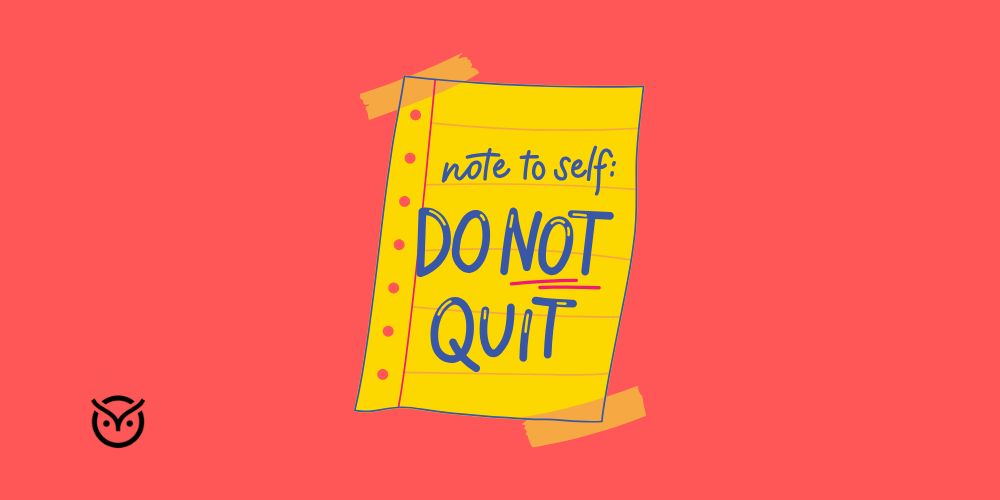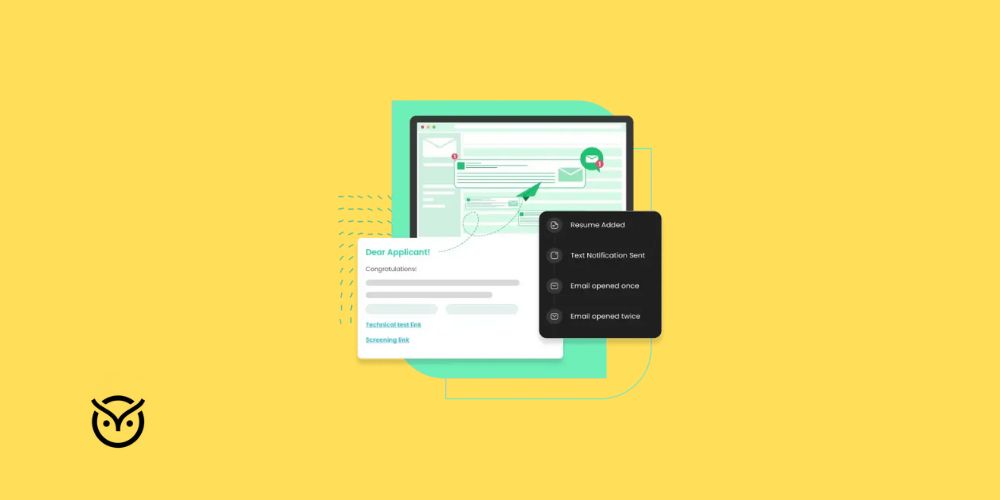
TL;DR
- Show how your motivation aligns with the role and company culture
- Be specific and avoid vague or generic answers
- Link motivation to values, goals, or past wins
- Use the STAR method for clear, structured responses
- Customize your answer for each job
- Avoid focusing only on money
- Keep it authentic and concise
You’re sitting in an interview, the conversation is going smoothly, and then it drops: “What motivates you?” Suddenly, your brain races. Do they want something personal? Something professional? What if you say the wrong thing? Knowing how to answer what motivates you interview question isn’t just about impressing the hiring manager. It’s about showing them how your drive aligns with the role and their company culture.
Here’s the good news: you don’t need a perfectly polished speech. You need an authentic answer that connects to your values, energy, and the role you’re applying for. In this blog, you will learn what motivates you, interview question answers recruiters actually want to hear, plus real examples, the STAR method, and tips to avoid common mistakes. Let’s break it down.
Why Do Interviewers Ask “What Motivates You?”

At first glance, the What motivates you interview question might seem vague or even unnecessary. But here’s why it matters: recruiters want to understand what energizes you at work, and if that drive matches their company’s values and role expectations.
According to a 2023 report by Gallup, only 33% of U.S. employees feel engaged at work. That means hiring managers are now more focused than ever on finding people whose motivation aligns with company culture, purpose, and goals because it leads to better performance and lower turnover.
Your response to “What is your motivation interview question?” helps them assess:
- Whether your interests align with the role
- How self-aware you are about your goals
- If your motivational triggers can drive long-term success within your team
So, it’s not just about saying something nice. It’s about demonstrating fit and foresight.
How to Answer “What Motivates You?” – 5 Proven Strategies

Let’s get practical. Here’s how to structure a great interview question what motivates you answer, no matter your experience level or industry.
1. Reflect on Your Past Wins
Think about when you’ve felt most energized and proud at work. Was it after leading a team to meet a deadline? Or building something from scratch? Those moments hint at your core motivations.
Example thought process:
“I noticed I thrive when solving complex problems under pressure. I loved leading a last-minute product pivot that saved the quarter.”
This can support answers like:
- What motivates you to perform your best work? “Working with cross-functional teams toward a tough deadline pushes me to think fast and act decisively.”
2. Connect to the Role You’re Applying For
One of the biggest turn-offs in interviews? Vague or generic responses. Instead, customize your answer based on what the role offers.
Example:
“What motivates you about this position?”
“The chance to work directly with clients and shape strategies. I’m energized by real-time impact and accountability.”
This shows research and alignment, two green flags for hiring managers.
3. Anchor Your Motivation to Values or Goals
If your personal values line up with the company’s mission, say it. People who are intrinsically motivated by growth, purpose, or impact are often more engaged.
Example:
“I’m motivated by continuous learning. That’s why this role caught my eye, it offers access to mentorship and complex projects.”
It also addresses what motivates your best on-the-job performance, and a solid follow-up if the interviewer digs deeper.
4. Use a “Why + How + Result” Formula
This approach gives your answer a mini-story arc:
- Why something motivates you
- How it shows up in your work
- A specific Result that backs it up
Example:
“I’m motivated by mentoring junior team members. I love helping others grow because it challenges me to communicate better. In my last job, two interns I coached were promoted within six months.”
That’s a subtle STAR (Situation, Task, Action, Result) approach that we’ll unpack more soon.
5. Practice, But Don’t Memorize
Yes, prep your answer. No, don’t turn it into a robotic monologue. Think of it like a friendly story you’d tell a colleague, professional, focused, but relaxed.
🧠 Find Your Motivation Type
You’re most excited at work when:
Examples of Motivations You Can Share in an Interview

Struggling to figure out what motivates you interview answer? You’re not alone. Many candidates find it hard to put their internal drive into words. Below are some solid examples you can tailor to your own story:
Making a Real Impact
“What motivates you to apply for this position?”
“I’m driven by the chance to make a measurable difference. In my last role, I led a process optimization project that cut costs by 15%. It felt great to directly impact results.”
Solving Tough Problems
“What motivates you to perform your best work?”
“I enjoy tackling challenges where I can dive into data and test creative solutions. Complex problems keep me sharp and engaged.”
Learning and Growing
“What is your motivation interview question?”
“Continuous learning motivates me. I’m always looking for new skills to master, which is why I pursued additional training in AI analytics last year.”
Helping Others Succeed
“What motivates your best on-the-job performance?”
“Mentoring others gives me energy. Watching a teammate grow under my guidance is incredibly fulfilling.”
Recognition and Responsibility
“What motivates you to work sample answer”
“Being trusted with high-responsibility tasks motivates me to go above and beyond. I enjoy earning that trust through hard work.”
Use these examples as a starting point. The key is to choose a motivation that genuinely fits you and aligns with the role you’re interviewing for.
Top Common Motivation Sources Recruiters Relate To

When it comes to what motivates you interview question answers, not all responses hit the same way. Some motivations tend to resonate more because they align with job performance, engagement, and leadership.
Here are seven recruiter-approved motivation sources that can inspire your answer:
| Motivation Source | Why It Works in Interviews |
|---|---|
| Challenge & Problem Solving | Shows initiative and critical thinking |
| Achieving Goals | Signals focus, ambition, and follow-through |
| Collaboration & Team Success | Highlights interpersonal skills and reliability |
| Professional Growth | Indicates a growth mindset and long-term commitment |
| Building or Creating Something | Appeals to roles in product, design, or innovation |
| Making an Impact | Connects to leadership or purpose-driven work |
| Recognition & Results | Common for sales, marketing, or performance-heavy roles |
Use this list to help answer questions like:
- What motivates you about this position?
- What are your motivations for applying for the job?
How to Use the STAR Method to Answer “What Motivates You?”

If you want your what motivates you interview question answer to really stick, use the STAR method. It keeps your answer clear, structured, and easy to follow.
Here’s how to do it step-by-step:
⭐ S – Situation
Start by setting the scene.
“In my previous role as a marketing coordinator, our team faced a major product launch delay.”
⭐ T – Task
Describe your responsibility.
“I was tasked with revising the campaign strategy within 72 hours.”
⭐ A – Action
Share what you did and what motivated you.
“Tight deadlines bring out my best work. I rallied the team, rewrote the timeline, and redirected the messaging.”
⭐ R – Result
Finish with what you achieved.
“The campaign launched on time and drove a 15% increase in engagement in the first week.”
That’s how you turn what motivates you interview question into a performance story, not just a personality trait.
Sample Answers to “What Motivates You?” Interview Question

Let’s bring it all together with some polished, what motivates you sample answers for different roles and motivations. Use these as inspiration, but always tailor your response to your experience and the job.
For a Project Management Role
“I’m motivated by organizing chaos into structure. In my last role, I was tasked with taking over a delayed product launch. Creating a new workflow and seeing the team rally around it was incredibly satisfying. We launched 10 days ahead of the revised schedule. That sense of alignment and delivery is what keeps me going.”
For a Technical Role
“Solving hard problems motivates me. I love digging into bugs or performance issues that others might avoid. In one case, I reduced load time on a major feature by 45%. The mix of logic and creativity makes it exciting and pushes me to stay current with evolving tech.”
For a Sales or Marketing Role
“What motivates me most is seeing real results. I get excited about building campaigns that drive engagement and conversions. At my previous company, one of my email campaigns exceeded the industry benchmark by 3x. The feedback loop and recognition energize me.”
For a Nonprofit or Purpose-Driven Role
“I’m motivated by knowing my work serves a greater purpose. That’s what drew me to this position. I’ve always felt fulfilled when I’m working toward something that helps others. It’s why I volunteered with education nonprofits while managing operations full-time.”
Mistakes to Avoid When Answering “What Motivates You?”

Even the best intentions can lead to answers that fall flat. Here are some common mistakes candidates make with the what motivates you interview question and how to avoid them.
Being Too Generic
Saying “I just like to do a good job” sounds nice… but forgettable. Be specific and give examples.
Focusing Only on Money
It’s okay to want good pay, but if what motivates you in your interview answer is all about money, recruiters may assume you’re not passionate about the actual work.
Rambling Without Structure
A long-winded answer loses the listener. Stick to one clear motivation, tie it to the role, and use the STAR method if possible.
Giving an Answer That Doesn’t Match the Job
Saying you’re motivated by independence in a highly collaborative role? Red flag. Make sure your answer fits the role and team culture.
Conclusion
The how to answer what motivates you interview question is your chance to shine, not just by telling recruiters what you love, but by showing how that energy translates into results. When you understand your personal drivers and communicate them with clarity, your answer becomes memorable, authentic, and powerful. Whether your what motivates you interview question answer is rooted in impact, growth, or collaboration, the key is alignment.
Match your response to the role, back it up with an example, and keep it real. And if you’re prepping for multiple interviews, online platforms can help you rehearse answers, decode job descriptions, and uncover the motivation triggers hiring teams are really looking for.




